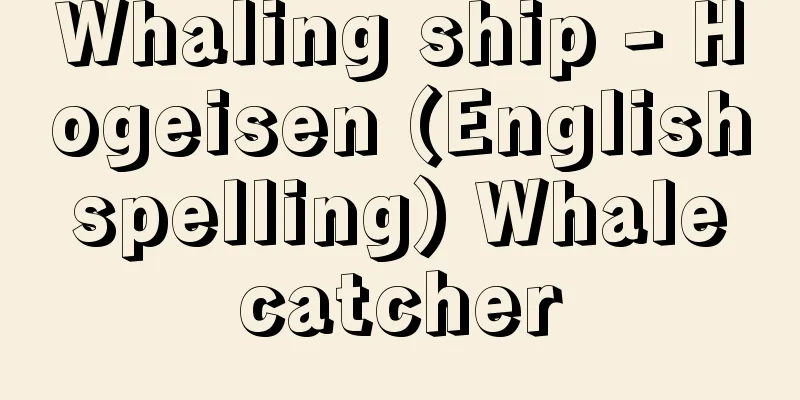Born: 1755? Nevis, British West Indies
[Died] July 12, 1804. New York American politician. He moved to New York in 1772 and entered King's College (now Columbia University) the following year. In 1774, he wrote a pamphlet called "A Full Defense of the Policies of the Continental Congress" and participated in the Revolutionary War. When the Revolutionary War broke out, he served as an artillery captain, and in 1877 was recognized and served as an aide-de-camp to General G. Washington. He then studied law in Albany and opened a practice. In 1882, he represented New York at the Continental Congress, where he stressed the need for a centralized state with the separation of powers. He played an important role in the convening of the Constitutional Convention, and wrote "The Federalist" in defense of the Constitution against the many opponents of the Constitution, greatly influencing public opinion. He was appointed Secretary of the Treasury in the Washington administration that began in 1789, and implemented a series of policies to solidify the economic foundations of the new nation, including issuing public bonds, establishing the Bank of the United States, setting tariffs, and promoting industry. When the Whiskey Rebellion broke out in 1894 over the domestic excise tax, he personally led the federal army in putting it down. He resigned as Secretary of the Treasury in 1895, but his political influence as a leader of the Federalists did not diminish. However, he deepened his conflict with the second Federalist president, J. Adams, and later, when Republicans T. Jefferson and A. Burr received an equal number of electoral votes in the 1800 presidential election, sending the House of Representatives to a runoff election, he supported his former political rival Jefferson against the wishes of the Federalists, losing support within his party. He died in 1804 from wounds he received in a duel with his arch-enemy Burr. Hamilton
Hamilton, Richard William Born: February 24, 1922, London
[Died] September 13, 2011. British artist from near Oxford. Known as the "father of pop art." After studying at the Royal Academy and the Slade School of Art, he became active as a designer. Many of his works parody the culture of the 1950s and 1960s. He was recognized as a pioneer of pop art in large part due to his collages that satirized middle-class family life. This collage, which became his representative work, was titled "Just What Is It That Makes Today's Homes So Different, So Appealing?" and was exhibited at the This Is Tomorrow exhibition held at the Whitechapel Gallery in London in 1956 by painters known as the Independent Group. In later years, he worked on commercial art, techniques such as painting on photographs, screen printing, and object art. He is known for his cover design of The Beatles' "White Album" (1968). Hamilton
Hamilton, James Born: 1769, London
Died: September 16, 1829. Dublin. British language educator and founder of the Hamilton Method (foreign language teaching method). After only four years of education, he worked as a peddler in France and Hamburg for several years, during which he learned German from French exile General de Angeli in Hamburg. In 1815, he set off for New York with plans to run a farm and potash factory, but changed his mind during the voyage and decided to teach foreign languages using de Angeli's method. In 1816, he held the first Hamilton Method class in Philadelphia, and thereafter taught in various cities in the United States and Canada with great success. In 1823, he returned to England and taught foreign languages to adults in various cities. He wrote his own textbooks, which, instead of using grammar, were translated word for word for each line of the original text. Major examples of this interlinear translation include The Gospel of John and Aesop's Fables. He is the author of The History, Principles, Practice and Results of the Hamiltonian System (1829). Hamilton
Hamilton, Sir William Rowan Born: August 4, 1805 in Dublin
Died: September 2, 1865. Dublin. Irish mathematician and physicist. He showed extraordinary talent from an early age, and began to take an interest in mathematics around 1820. He read the works of AC Clairaut, Newton, P. Laplace, and others, and in 1822 wrote a paper on geometrical optics, which was praised by the president of the Royal Academy of Ireland. In 1823, he entered Trinity College, Dublin, and was appointed professor of astronomy while still a student. His main achievements include the introduction of his own characteristic function to complete geometrical optics as a new mathematical system and the prediction of conical diffraction, the use of a principle now known as Hamilton's principle to derive canonical equations and establish the foundations of analytical mechanics, and the discovery of quaternions for which the commutative law of multiplication does not hold. The importance of his achievements was not fully recognized until the birth of quantum mechanics. He was knighted in 1835, and became president of the Royal Academy of Ireland in 1837. His major works include "Theory of the System of Rays" (1827), "General Method of Mechanics" (35), and "Principle of the Quaternion Method" (66). Hamilton
Hamilton A city in southeastern Ontario, Canada. It is located 58 km southwest of Toronto, at the western end of Lake Ontario. In 1669, French explorer La Salle first landed on the shores of Hamilton Bay. In 1778, Loyalists founded the town, and in 1846 it became a city. In 1830, the Burlington Canal was opened, connecting Hamilton Bay and Lake Ontario. In 1850, it became the center of the railway network, and since then it has developed into an industrial city. In particular, the steel industry, which began operations in 1893, accounts for a large portion of Canadian steel production. Other industries include railways, electrical equipment, clothing, and chemicals. Heavy industry is concentrated on the lake shore, and the port is separated from Lake Ontario by a gravel bar about 6 km long. It is also one of the leading fruit-producing centers in North America, and is famous for its fruit, vegetable, and flower market, which is held three times a week. It is home to McMaster University (1887), famous for its atomic research, and the Royal Botanic Gardens. Population: 519,949 (2011). Hamilton
Hamilton, Emma, Lady Born 12 May 1765, Great Neston, Cheshire
[Died] 15 January 1815, Calais. Wife of British diplomat William Hamilton. Born the daughter of a blacksmith in Cheshire, she lost her father at an early age. From about 1780, she was under the protection and education of Hamilton's nephew C. Greville, who would become her future husband, and became a star in high society due to her beauty and intelligence. Eventually, in exchange for Greville's debt repayment, she became Hamilton's mistress, and later his wife (1791). In high society in Naples, where her husband was stationed, she played an important role in gathering information, and contributed to the victory of the British fleet in the Battle of the Nile in 1798. This led to the love of H. Nelson, and in 1801 she gave birth to his daughter, Horatio. After the death of her husband Hamilton (1803) and Nelson's death in battle (05), she inherited a huge inheritance, but she indulged in gambling and extravagance, and fled to France in poverty, where she died in Calais. Hamilton
Hamilton, Sir William Born: December 13, 1730, Scotland
[Died] April 6, 1803, London. British diplomat and archaeologist. Husband of Emma Hamilton. He was an army officer, but after marrying his wealthy first wife, he left the army and became a diplomat. He was the envoy to Naples from 1764 to 1800. During that time, he studied the volcanic activity of Vesuvius and Etna, and published several papers. He was also a famous antiquarian, and many of the treasures he collected are kept in the British Museum. He inherited a large fortune after his wife's death (1782), and in 1791 he remarried Emma, who later became the mistress of H. Nelson, and became a popular figure in Neapolitan society. Hamilton
Hamilton The administrative seat of South Lanarkshire, in south-central Scotland, UK. It is located southeast of Glasgow, on the left bank of the River Clyde, near the confluence with the River Avon. Located in a coal mining area, the town developed through coal mining, and in the 19th century, related industries such as cast iron and machinery were established in the town. However, by 1947, all the coal mines had closed, and today, with its backdrop of thriving agricultural areas for fruit cultivation, horticulture, and dairy farming, it functions primarily as the commercial center of these areas and as a residential suburb of Glasgow. Light machinery, textile, and food industries are also carried out in the town. Population: 48,220 (2004 estimate). Hamilton
Hamilton A city in southwestern Ohio, USA. It is located 37 km north of Cincinnati, on the Great Miami River. Its history began when Fort Hamilton was built in 1791 in preparation for a war with the Indians, and a town called Fairfield was founded adjacent to it in 1794. The fort was abandoned in 1796, and the town was renamed after A. Hamilton around that time. In 1854, it merged with Rossville, located across the river. Industries include paper, bolts, auto bodies, machinery, and diesel engines. There is a branch campus of Miami University. Population 61,368 (1990). Hamilton
Hamilton, Lord George Francis Born: December 7, 1845.
Died September 22, 1927, London. British politician. Entered the House of Commons as a Conservative Party member in 1868. Also well-known as an economist, he served as chairman of the Committee of Inquiry into the Poor Law and Unemployment. He was in charge of education administration from 1878 to 1880, and served as Minister of the Navy from 1885 to 1992. He is best known for his achievements as Minister of the Navy. He was instrumental in the transfer of naval ordnance control from the War Office to the Navy Office, the establishment of the Navy Office Intelligence Department, and was a key figure in the naval arms race with Germany, as well as in his role as an advisor to Lord Fisher, the First Minister of the Navy, during the early stages of World War I. Hamilton
Hamilton, Sir Ian Standish Monteith Born January 16, 1853 in Corfu, Ionian Islands
[Died] October 12, 1947, London. British soldier. Joined the army in 1872, and played an active role in the Second Afghan War, the South African War, and the Nile River Expedition. Served as the head of a military mission to the Japanese during the Russo-Japanese War. In 1915, he became commander in the Mediterranean region, and led the Gallipoli Campaign during World War I. However, he was dismissed after the battle was not successful and he insisted on continuing the campaign. He wrote the book "Galipoli Diary" (2 volumes, 1920). Hamilton
Hamilton, Sir William, Baronet Born: March 8, 1788, Glasgow
[Died] May 6, 1856. Edinburgh. British philosopher. Professor at the University of Edinburgh in 1821. A representative of the Scottish School (→ common sense philosophy), he was influenced by Kant in epistemology and asserted the relativity of cognition, stating that the Absolute is not the object of cognition but the object of faith. In psychology, he also took the position of ability psychology. His main work was Lectures on Metaphysics and Logic (4 volumes, 1859-60). Hamilton
Hamilton, William Gerard Born: January 28, 1729, London
[Died] July 16, 1796, London. British politician. After graduating from Oxford University, he joined the House of Commons in 1754 and held various posts in trade, colonial affairs, and Irish affairs. His maiden speech in the House of Commons (November 13, 1755) was an impassioned speech that lasted 15 hours, and was so highly praised by H. Walpole and S. Johnson that he was nicknamed "Single Speech Hamilton." Hamilton
Hamilton, Anthony [Born] Around 1645
Died: April 21, 1719, Saint-Germain. Irish author. Wrote in French. Spent 10 years of his childhood and from about age 45 until his death in France. His major work, Memoirs of the Comte de Gramont, was written by his brother-in-law, the old Earl, and was a great success when it was published in 1713. Although it is an inaccurate record, it vividly depicts the English court at the time in a humorous style. Hamilton
Hamilton, Earl Jefferson Born: May 17, 1899, Howlka, Mississippi
[Dead]?
American economist and economic historian. Specialized in the economic history of early modern Spain. Lecturer in economics at Duke University from 1927 to 1929, and professor at the same university from 1929 to 1944. He subsequently served as professor at Northwestern University, the University of Chicago, and the State University of New York. His major works include War and Prices in Spain 1651-1800 (1947). Hamilton
Hamilton, Patrick [Born] Around 1504
[Died]29 February 1528.
The first preacher and martyr of the Scottish Reformation. He studied at the University of Paris and was influenced by Luther and Erasmus. After returning to Scotland, he continued his studies at the University of St. Andrews, but was convicted of heresy for preaching reform and burned at the stake. Following the example of P. Melanchthon, he wrote his own theological treatise, Loci Communes (1526). Hamilton
Hamilton A port city on the north coast of the main island of the Bermuda archipelago (Great Bermuda) in the northwest Atlantic Ocean. It is the capital of the British colony of Bermuda. It was founded in 1790 and replaced St. George on St. George's Island as the capital of Bermuda in 1815. It has been a free port since 1956. There is a neo-Gothic cathedral in the city center. The main source of income is tourism. Population 969 (2000). Hamilton
Hamilton, Andrew [Birth] 1676
Died August 4, 1741. Philadelphia. Born in Scotland, he immigrated to America at a young age and became a lawyer in Pennsylvania in 1717. In 1735, he successfully defended the printer J. Zenger in the famous libel case known as the Zenger case, laying the foundation for the establishment of freedom of the press in colonial America. Hamilton
Hamilton The central city of the Waikato region of North Island, New Zealand. It is located about 110 km south-southeast of Auckland, on the right bank of the middle reaches of the Waikato River, which flows out of Lake Taupo. The area is the largest plain in New Zealand, and is a distribution and processing center for dairy products and timber. It is also home to the University of Waikato. Population: 98,500 (estimated 1990). Hamilton
Hamilton, William Born: 1665, Ladyland
[died] May 24, 1751. Latrik Scottish poet. A pioneer of Gaelic poetry, a language unique to the Scottish Highlands. Known for his correspondence in verse with A. Ramsay and for his modern poetry based on Gaelic folk tales. Hamilton
Hamilton A town in the southwest of Victoria, Australia. Located 286 km west of Melbourne, it developed in the mid-19th century as a transit point between Portland and the goldfields. It is one of the central cities in the agricultural and pastoral region of the state. Population 9,756 (1991 estimate). Source: Encyclopaedia Britannica Concise Encyclopedia About Encyclopaedia Britannica Concise Encyclopedia Information |










